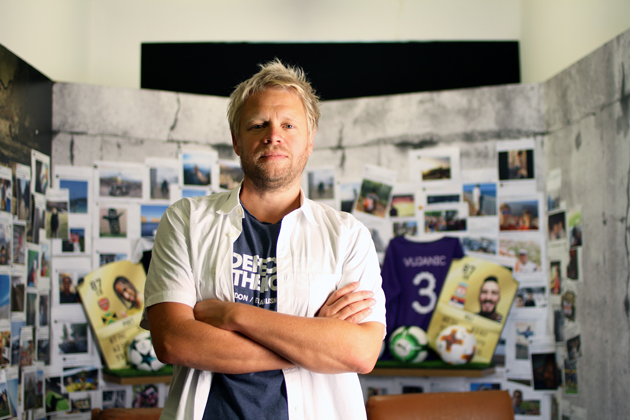5 marketing lessons from Copa90's challenge to the big sports broadcasters
We interviewed James Kirkham, the Head of Copa90 to find out more about the strategic approach that has seen them grow to reach 85 million views per month and be talked about as the most progressive brand in football. Here are five things marketers should know from our conversation with James and Copa90's current challenge to the giants of broadcast media.
#1 Go where the audience is
Copa90 show very few live games and have no broadcast rights to Premier League football, and yet they create and sustain a huge amount of dialogue and engagement with their audience of young fans.
Understandably, the broadcaster's focus has been to drive audiences to watch football on TV, with social media efforts largely existing to support that goal. Copa90, however, provide their content on the platforms young people increasingly already spend their time e.g. YouTube, Facebook and Snapchat.
The Copa90 approach offers a 360 relationship and maintains an ongoing conversation. They provide content at the times and through the channels their audience want to consume it, rather than focus on any single media channel or televised game.
#2 Action works for video
Sports media traditionally focuses on the TV studio experience for commentary and analysis. Copa90's approach replicates Vice's 'immersion' form of journalism, where cameras go the heart of the action and the focus is on action rather than dialogue, which play to the strengths of the video format.
'FIFA and Chill' is a show that presents interviews with the stars gaming with the disarming hosts, Poet and Vuj. The act breaks with interview convention, but also helps remove the invisible barriers usually present in an interview scenario, resulting in celebrities who actually look like they're having fun.
Whether it's trickshots on the training pitch, fans singing on the march to the stadium or celebrities playing FIFA with the guests in Copa90's 'living room' style studio, the focus is always on action and play, not dull analysis.
#3 Close the feedback loop
'Comments Below' is a regular Monday show whereby the themes and topics for the show are literally based upon the comments left on the previous show by their YouTube audience. "It’s not reading out a Tweet once and claiming it’s 'interactive.'" says James of the TV broadcasters, "It’s absolutely born from it."
Having open channels of dialogue with audiences that are actively monitored means Copa90 can instantly learn what is working and what isn't, and implement new ideas and plan shows accordingly. Many brands may claim to listen to comments and feedback, but few act on them as quickly.
#4 Media choices can surprise
A simple poster campaign revealing a brand's new logo may not turn many heads for companies with a history of being seen outdoor, but the unusual combination of a brand born on YouTube, appearing in a real-world underpass, created something of a stir on social media for Copa90.
For brands completely conceived in a digital space, simply existing physically in the real world breaks the media conventions and is unexpected. The resulting surprise for audiences can create something of a multiplier effect, creating a far higher return of engagement than the same media would usually provide.
#5 Ambition is rocket fuel
Copa90 have made clear to the public whenever possible the challenge they are laying down to the traditional sports broadcasters. They see Sky Sports and BT Sport as their primary competition rather than invite comparisons to smaller niche digital brands.
Strategically, this declaration of intent helps elevate media and public perceptions of Copa90. Rather than see the sports media market as simply a two-horse race between Sky and BT, it helps Copa90 be seen as one of three brands fighting it out, despite in reality being far smaller in size.
“We’re trying to change 100 years of sports media”
Setting audacious ambitions and making them heard is also beneficial from a cultural perspective, as it frames what success looks like and gives employees something to rally behind. "Grandiose ambitions are a really good thing" says James, "they breed that challenger culture that you have to cultivate".
Summary
The marketing departments at Sky Sports and BT Sport may already be well aware of how they are losing share to emerging media players like Copa90. Mimicking these behaviours may draw them back level, but to get ahead with this younger audience they'll need to reinvent with ideas of their own.
Read our full interview with James Kirkham, the Head of Copa90.





